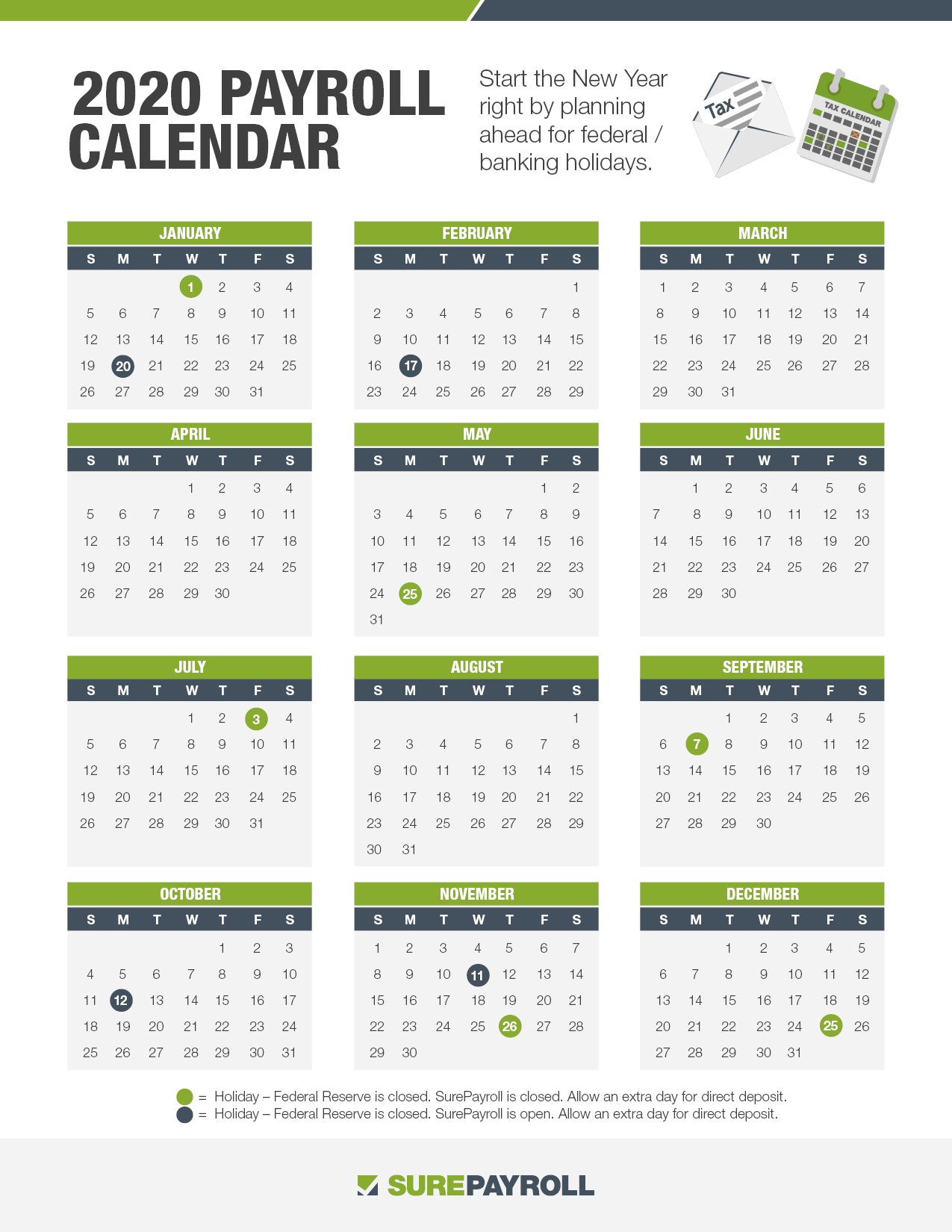The Payroll Blog
News, tips, and advice for small business owners
- Home
- Resources
- Payroll Blog
- How to Handle End of Year Payrolls
How to Handle End of Year Payrolls

2020 is upon us, and before we know it, 2019 will be a distant memory. This time of year is always a little hectic, with shopping for gifts, attending holiday parties, spending time with loved ones, and business tasks like planning payroll around bank holidays and paying out bonuses. Because of this busy time of year, it’s incredibly easy to miss important deadlines and forget tasks you need to do for your employees. Before you leave the decade behind, here are a few things to keep in mind as you close out your payroll for the year.
Bank Holidays
When you first created your payroll schedule, it’s unlikely that you were able to predict what day each holiday was going to fall on. A bank holiday is a business day during which financial institutions are closed for a holiday. While this overall sounds harmless if the federal reserve is closed, banks will not be open to process payroll, which can hurt your small business employees.
So how do bank holidays affect your payroll? If your normal processing day falls on a holiday and you pay your employees by direct deposit, you’ll want to plan to process your payroll at few days ahead of time to make sure your employees are paid on schedule. Nothing ruins the warmth and joy of a holiday than not receiving your paycheck on time! For 2019, the last day you can process payroll without expediting is December 27th.
If you are unable to process payroll early, your employees will receive their payment a day later than normal, when financial institutions have reopened. This is also a time when expedited payroll can come in handy, but only if your payroll provider offers flexible payroll options. For example, SurePayroll offers same-day next-day payroll options for these exact instances, to help get you out of a crunch. If you know that you can’t process payroll before the bank holiday, tell your employees ahead of time so they know there will be a slight delay in receiving paychecks so they can plan accordingly.
Want to plan ahead? We’ve prepared a 2020 Payroll Calendar to help you to prepare for all 2020 bank holidays.

Bonuses / Holiday Pay
In addition to having a few extra days off, the year-end sometimes brings with it an additional benefit – year-end bonuses! Offering your employees a bonus is a great way to show them that you appreciate them choosing you as an employer and that you care about them outside of work. It can help to increase employee engagement, especially if the payout is based on performance.
If you’re planning on gifting your employees with a year-end bonus, you may be tempted to keep it simple and pay them cash. While it may seem easier to pay under the table, keep in mind that there are many complications that arise from paying employees cash. As a small business owner, you are still required to report all wages to the IRS, including those paid in cash. When paying out year-end bonuses, those wages should be treated like any other paycheck and have the proper payroll taxes applied. Failing to do this is illegal and you could face fines if your business is ever audited. When it comes to payroll and taxes, It’s always important to follow the proper protocol to avoid expensive consequences down the road.
Bottom Line
You’ve heard it before, but, the most beneficial thing you can do to keep your small business running smoothly is to plan ahead and avoid shortcuts. If you miss a payroll processing deadline, flexible payroll processing options may get you out of a rut, but it’s not something you should plan on doing more often than absolutely necessary. Additionally, while it may seem straightforward and simple to pay your employees under the table, it could cost you a hefty fine. Remembering these little tips can help you stay out of a sticky situation, no matter what time of year it is.
Related Blog Posts
View Our Plans and Pricing
Small Business Is Our Business.
This website contains articles posted for informational and educational value. SurePayroll is not responsible for information contained within any of these materials. Any opinions expressed within materials are not necessarily the opinion of, or supported by, SurePayroll. The information in these materials should not be considered legal or accounting advice, and it should not substitute for legal, accounting, and other professional advice where the facts and circumstances warrant. If you require legal or accounting advice or need other professional assistance, you should always consult your licensed attorney, accountant or other tax professional to discuss your particular facts, circumstances and business needs.



